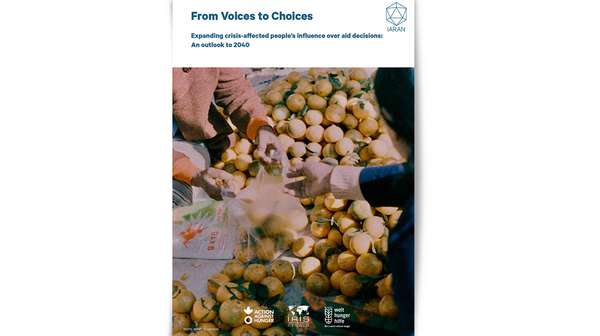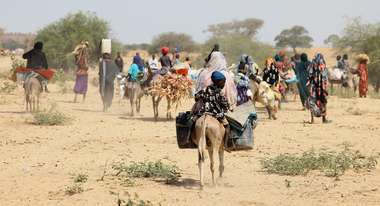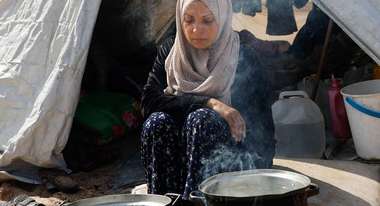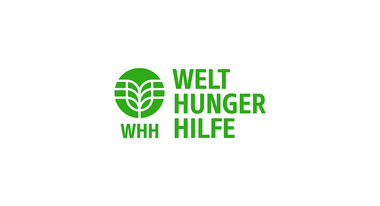Expanding crisis-affected people’s influence over aid decisions: An outlook to 2040.
Rethinking Aid: Involving Crisis-Affected People
Crisis-affected people are the central agents in their own response and recovery. If local knowledge and contextual understanding are key for making good aid decisions, it is crucial for crisis-affected people to participate in aid decision making.
Despite commitments to make humanitarian response as local as possible and as international as necessary, the humanitarian system usually continues to default to an international-first course. It is influenced by power imbalances suiting aid providers. Humanitarian aid reforms set crisis-affected people at the centre of humanitarian response. Meanwhile it also created a very cumbersome coordination system and technocratic approach, while tackling only the surface of the problem and not its causes. Thus, people affected by crises still have limited abilities to influence the decisions or hold aid actors accountable.
People deserve more influence on the assistance they receive
The report Voices to Choices examines the factors blocking transformation of the humanitarian system. It sheds light on how external factors like technology, interconnectivity, migration, urbanisation, climate change, youth or education will force the system to change the way it works and have the potential to catalyse greater influence by crisis-affected people on the assistance they receive.
In fact, they will expand venues for people to connect with formal and non-formal aid providers who are willing to meet their priorities and thus to organise their own response, rather than relying on “who shows up”. This will force the system to really move towards subsidiarity and genuine partnership between humanitarian sector actors and local actors. The report includes a very thorough analysis of what participation has traditionally meant, and what transformative participation means. It is an inspiring tool and food for thought for all of us.
Welthungerhilfe's commitment
Putting people at the centre, leaving no-one behind, committing to transparency and accountability have since long been part of Welthungerhilfe’s work, through the adoption of the Core Humanitarian Standard and beyond. This is also reflected in the commitments that Welthungerhilfe made during the World Humanitarian Summit in 2016. This is also in the staff’s daily focus.
If you are interested in learning more about the report, there will be online events in the next weeks and months. Watch the first emerging technology webinar here and check back later for more.








